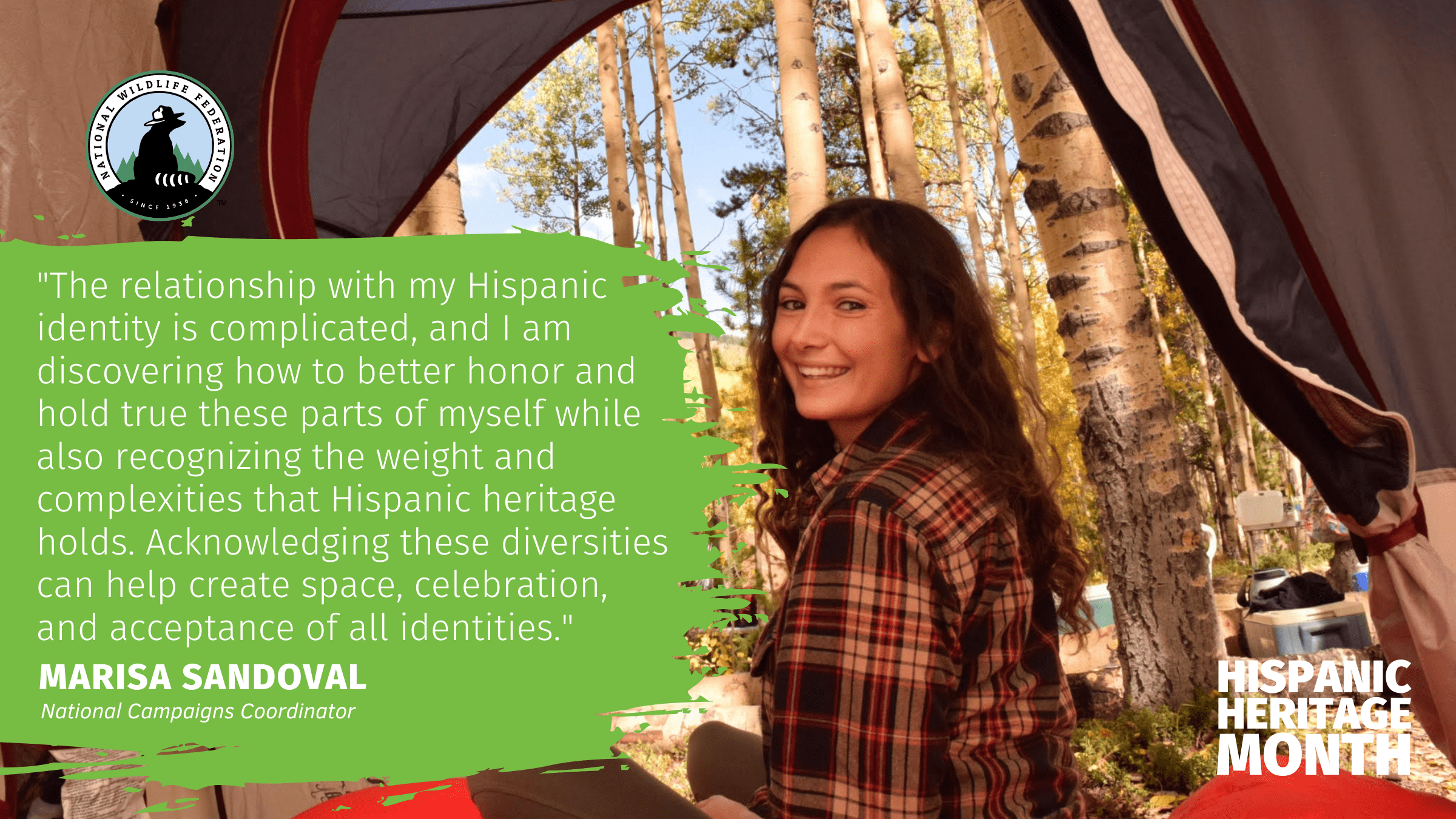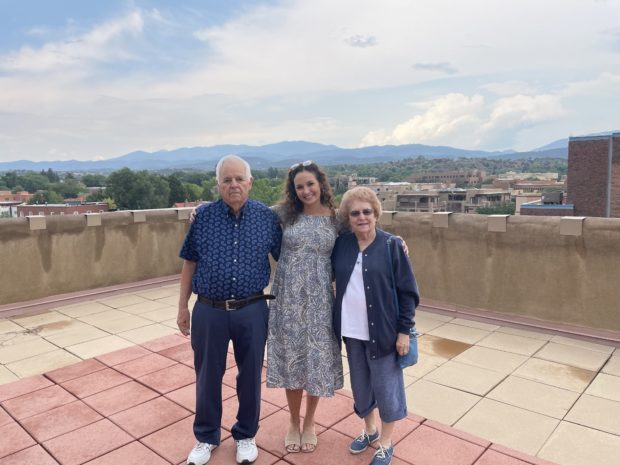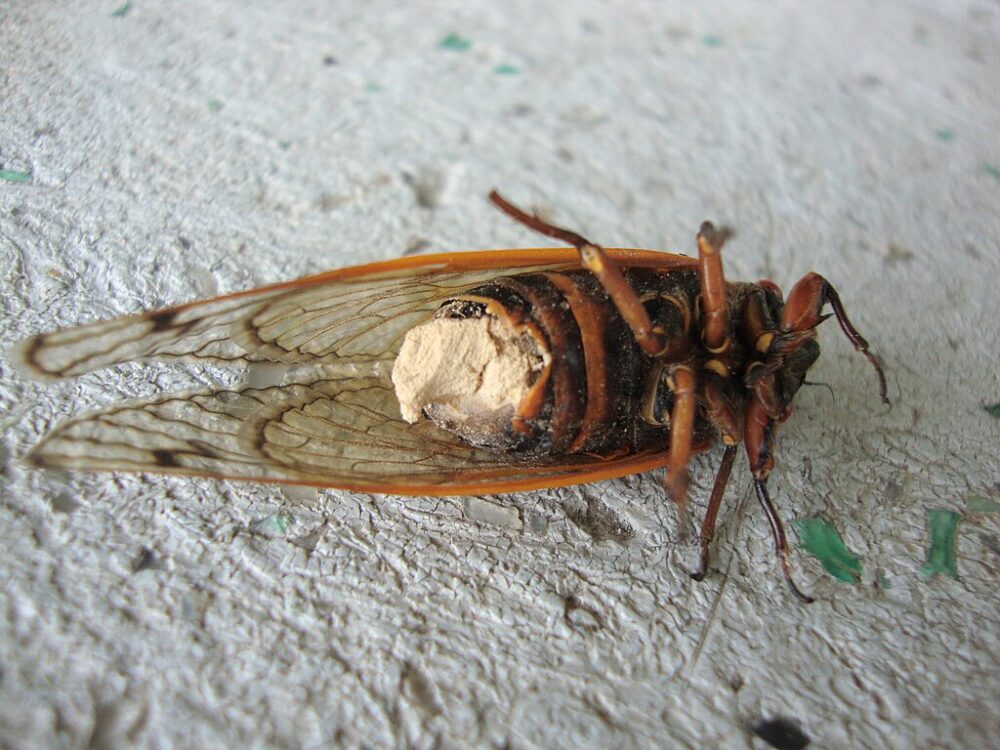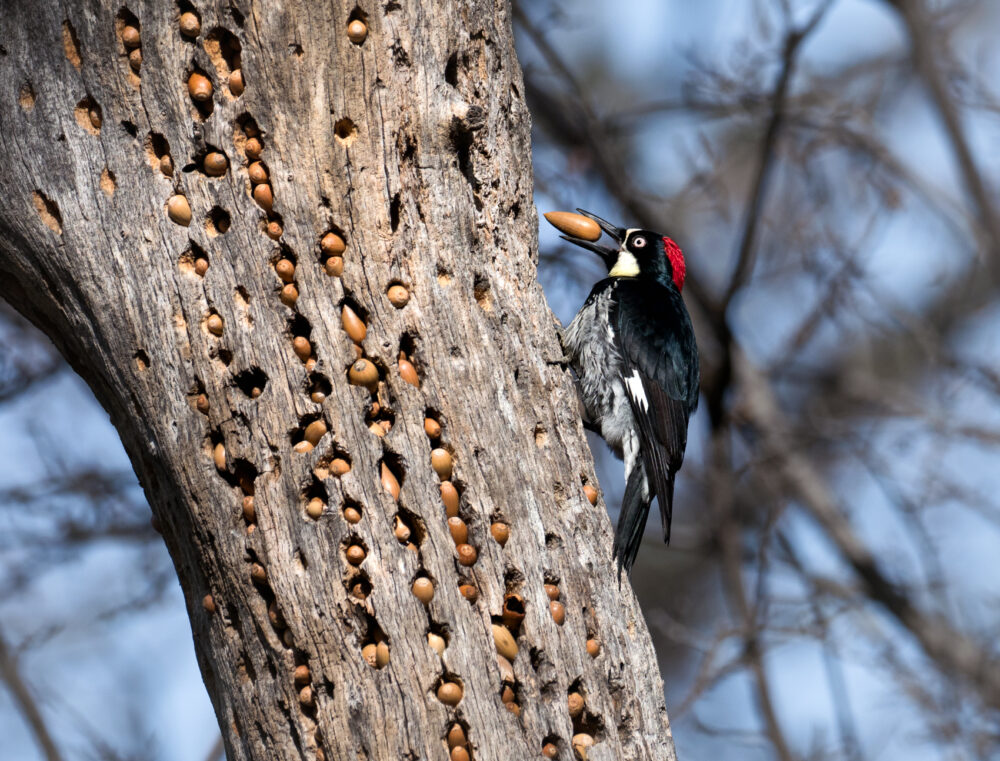We have much more to do and your continued support is needed now more than ever.
Hispanic Heritage Month Employee Spotlights: Marisa Sandoval

This Hispanic Heritage Month, members of the Latinx, Hispanic, and Multicultural Employee Resource Group (ERG) at the Wildlife Federation are coming together to share our stories — in our own words. Join us as we explore the complexities of our identities throughout the month.

Name: Marisa Sandoval
Pronouns: She/Her/Hers
Position: National Campaigns Coordinator
What interests you about conservation?
The connectedness between humans and the environment and what steps can be taken to create a sustainable, just, and thriving planet for future generations. I’m increasingly interested in the inequality in access to resources that drive environmental conflict and degradation.
How would you describe your cultural identity? How do you identify yourself? Why?
I identify as Hispanic, but the truth is it’s always held some complexity for me. I did not grow up near my culture or relatives and have always felt a bit distanced from that part of me. We also moved around a lot when I was younger, and everywhere I always experienced feeling other, but never really understanding why. As I grow older, I realize what a special part of me I have been missing – and it’s been increasingly important to me to connect with my roots and family in New Mexico.
Though my ties to my cultural identity are continually growing, and I have always deeply valued the time we spent there. Some of my fondest memories are being there for Christmas – which in New Mexico is pure magic. The beauty of farolitos brightening up the streets and houses, the tradition of lighting a long row of luminarias in my aunties’ backyard on Christmas eve, and watching the Los Matachines dance hold a special place in my heart and in a way have always made me feel more connected to my identity.
While these memories and traditions are an important part of who I am, I think I’ve also afraid to lean into my identity because I’ve been so distanced from it. Even though I’ve always not been white, I’ve also never felt truly Hispanic enough. The relationship with my Hispanic identity is complicated, and I am discovering how to better honor and hold true these parts of myself, while also recognizing the weight and complexities that Hispanic heritage holds. Acknowledging these diversities can help create space, celebration, and acceptance of all identities.

How did you end up at the National Wildlife Federation?
I was very excited to start at National Wildlife Federation as an office manager for the Rocky Mountain Regional Center! At the time I had just returned from working abroad and was struggling to find employment. I found a lot of solace during this uncertain time (and throughout my life) in being outdoors. It was something affordable and accessible to me in Colorado – a privilege I had taken for granted.
I thought it was a long shot to hear back from an organization like National Wildlife Federation, but after applying was inspired to figure out how to start a career in conservation. I desperately wanted to learn how to give back to all the outdoor places that I have always felt a deep connection to. Four years later I still can’t believe I’m in Washington, D.C. doing exactly that!
What does Hispanic Heritage Month mean to you?
I’ve more recently learned of Hispanic Heritage Month. I believe celebrating and lifting visibility during this time is important to bring awareness to the realities and achievements of Hispanic heritage. When first learning of Hispanic Heritage Month, it was exciting to see the opportunities there was for the community to connect and share the inspiring contributions of Hispanic Americans to our culture.
This ERG has also expanded my understanding of the weight that Hispanic Heritage Month holds, and has provided such a learning opportunity for me to more deeply understand the complexities of colonization this term carries for Indigenous and Latinx peoples. This month should be a time to reflect on this reality and the resilience of its people as well.
What is one thing you want others to know about Latinidad?
Latinidad is not all-encompassing. This is intentional, as the erasure of identity and these differences is a tool used to reinforce colonization. It is important to understand and celebrate the many cultural differences and individual uniqueness that exists in Latinidad. Additionally, it is our own experiences that shape our identity – it is ours to define and hold, and no one else’s place to question.





















